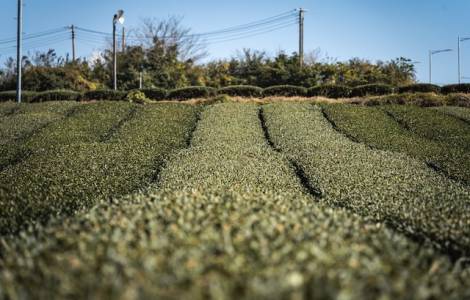
[Foto di john ko su Unsplash]
Seoul (Agenzia Fides) - In an increasingly technological and digital world, it is particularly important to value agriculture as a direct relationship with the land and its fruits, respecting and embodying the spirit of the encyclical Laudato Sì on the care of the common home. For this reason, the "Rural Revitalization Movement", led by Father Lee Seung-hyun in the Archdiocese of Seoul is organizing a "Farmer's Day" on July 16 to raise awareness throughout the community. This day was established back in 1995 by the Korean Bishops' Conference to encourage Christian communities' concern and prayer towards farmers and to encourage the practice of fraternal sharing between town and the countryside. In his message for this year's 28th Farmers' Day, Abbot Park Hyeon-dong, Chairman of the Bishops' Conference's Environment Committee, emphasized "the importance of ecological agriculture in times of climate catastrophe" and criticized industrial agriculture.
On the special Day, a Eucharistic celebration will be held in Seoul Cathedral, presided over by Bishop Yoo Gyeong-chon, who is responsible for social pastoral work. The city will host a market of agricultural products, the "Myeongdong Full Moon Market", where citizens will have the opportunity to learn more, taste and buy directly from farms. Also, various activities such as indigenous seed protection campaigns, vegetarian culture campaigns, and urban-rural exchange activities will be presented at the stands. The focus is on Laudato Si', the encyclical promulgated by Pope Francis in 2015, which contains information on how to protect the earth and live in harmony with all creatures. Agriculture in South Korea is a sector that has undergone rapid change. At the time of its establishment in the post-war period, Korea was a typical agricultural country with more than 80% of the population engaged in agricultural production. After land reform and the wave of world trade liberalization that began in the 1980s, Korean agriculture underwent a radical transformation. Korea became self-sufficient in rice, staple food, in 1978 and in 1996 Korea became the first Asian country after Japan to mechanize its agriculture. The development of Korean agriculture has also led to the development of agriculture-related industries such as fertilizers, agricultural machinery, and seeds. With only 22% of the country's land used for agriculture, Korea has a very low level of self-sufficiency in agricultural commodities, with the exception of rice and potatoes, while 85% of other foods are imported. Farm sizes vary: from small family businesses to large companies. With the rapid growth of the Korean economy, agriculture's share of Korea's GDP has fallen to 2.9%. With urbanization and industrialization, Korea's agricultural population has gradually shrunk and aged. In order to save the sector, thanks also to the interest and involvement of the Catholic Church, a movement for environmentally friendly agriculture and for the promotion of organic farming has developed over time, which is reflected both in national politics and in farmers' movements. Farmer and consumer cooperatives are doing their part to make South Korea a global role model for sustainable agriculture. (PA) (Agenzia Fides, 10/7/2023)